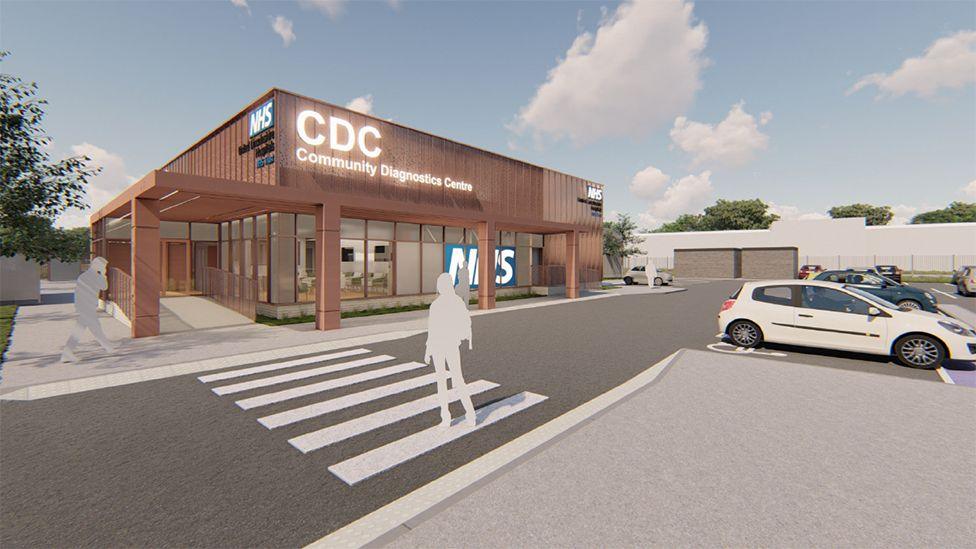Cancer patients offered tattoo-free treatments
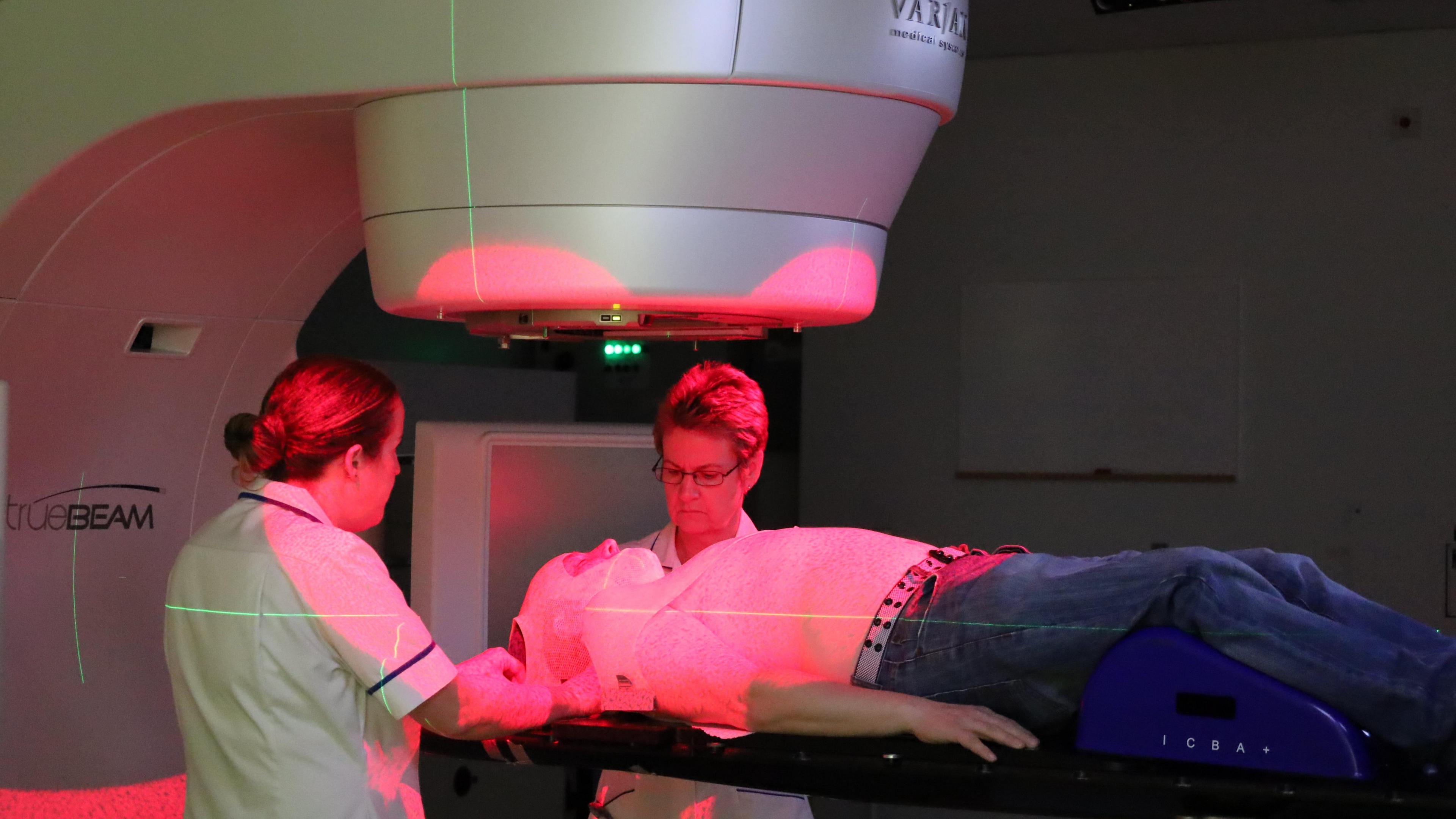
Lincoln County Hospital is the first in the country to offer open mask radiotherapy treatments
- Published
Cancer patients in Lincolnshire will no longer need tattoos before radiotherapy treatment, a health trust has said.
The United Lincolnshire Hospitals NHS Trust (ULHT) said it used a technique called Surface Guided Radiotherapy (SGRT), which does not leave permanent marks.
Previously, patients were tattooed to help ensure accuracy.
The trust said it was also the first in the country to offer open mask treatments with SGRT for all head and neck procedures.
Traditionally, patients needing radiotherapy were fitted with a mask which covered their whole face.
The technology being used at Lincoln County Hospital, now sees patients fitted with a mask covering just their chin and forehead.
It allows patients to breathe more easily and reduces anxiety and distress.
Christine Doughty, 73, from Gainsborough was given the treatment after a tumour was found on her gum.
She said: "I’m so pleased I could have the open mask; I think a full mask would have made me panic.
"I had 30 rounds of radiotherapy and have been given the all clear now.
"I’m so thrilled with the treatment and the outcome and being able to celebrate with my family has been wonderful."
Why are tattoos used in radiotherapy?
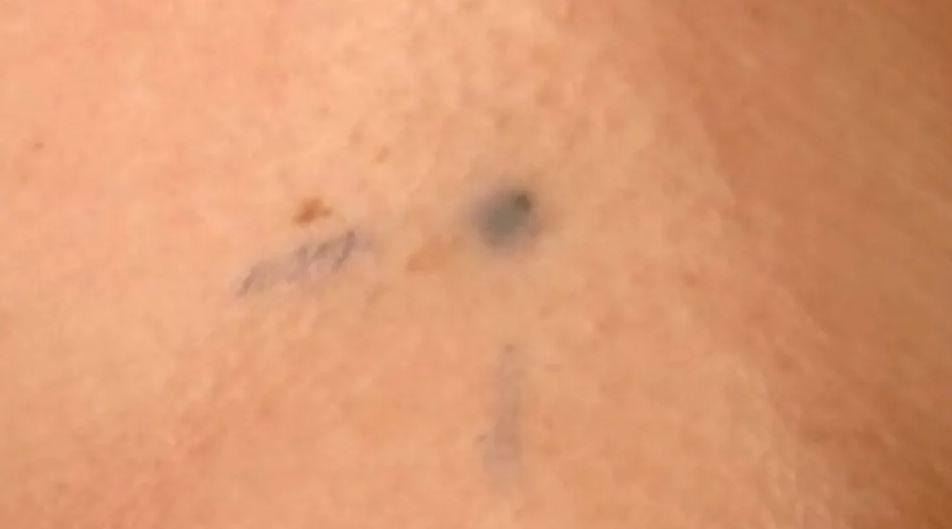
Radiotherapy is the use of radiation to kill cancer cells. It is typically delivered as high-energy X-rays over a course of treatment, so involves numerous sessions.
Targeted in the right area, radiotherapy kills cancer cells. It also destroys healthy cells, but these have the ability to recover and regenerate. The radiotherapy has to be aimed at exactly the right place and that is where tattoos often come in.
Most patients will have between one and five permanent pinpoint tattoo marks made on the skin.
This is the same technique used in a conventional tattoo parlour. The reason the marks are made is to line up the radiotherapy machine and make sure the radiation targets the correct area.
There is currently no service in the NHS to remove the pinpoint tattoo marks. A few patients pay privately to have them removed.
Safe and more accurate
Jacob Curran, who led the project at ULHT, described the development as a "huge step forward".
He added: "It’s difficult to explain what a difference the tattoo-less treatment makes unless you have experienced radiotherapy.
"It allows us as practitioners to deliver safer and more accurate treatment, and means patients are not left with a permanent reminder of a really difficult period in their life."
Follow BBC Lincolnshire on Facebook, X (formerly Twitter), external, and Instagram. Send your story ideas to eastyorkslincs.news@bbc.co.uk, external
Related topics
- Published5 May 2024
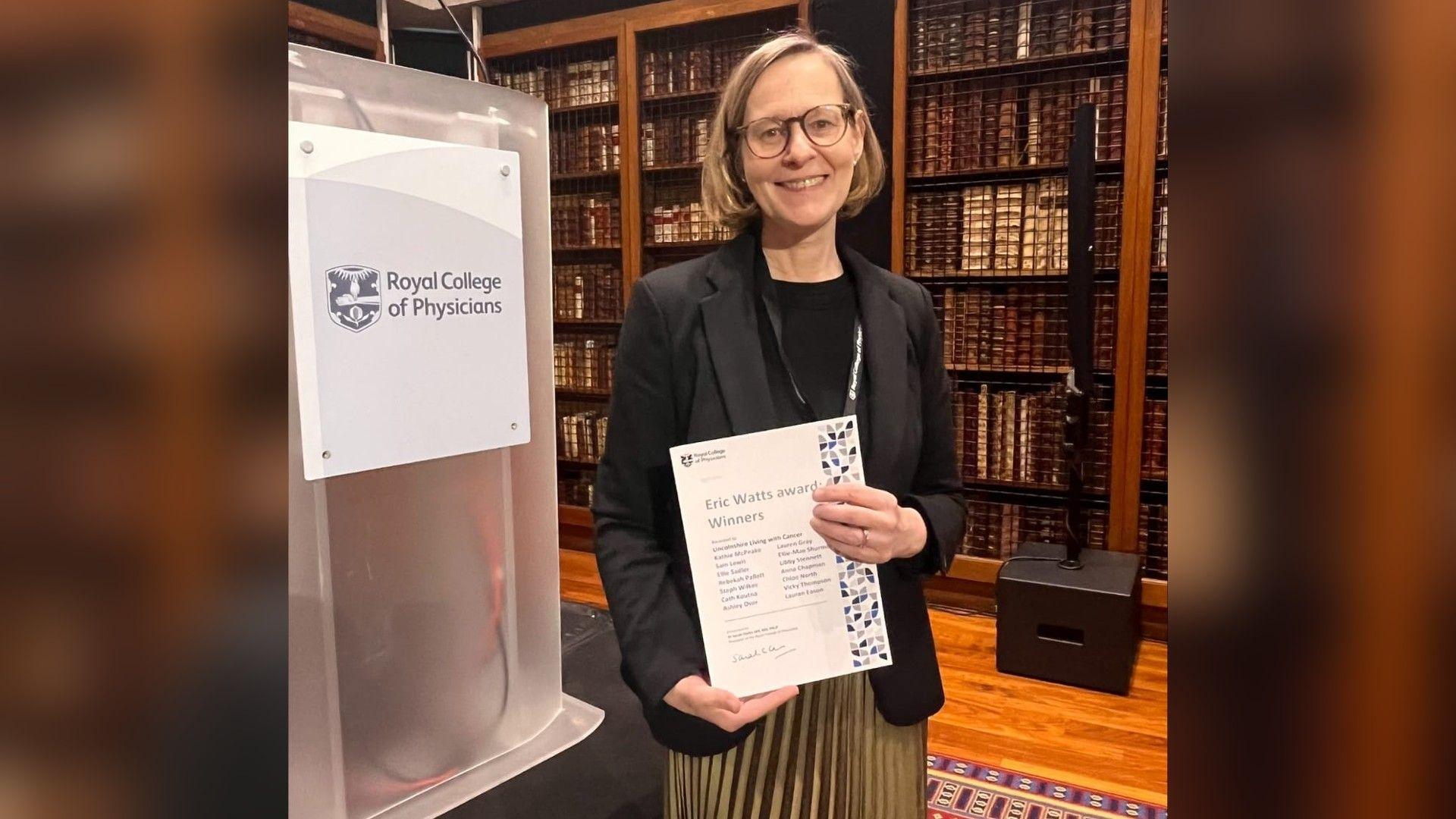
- Published29 May 2024
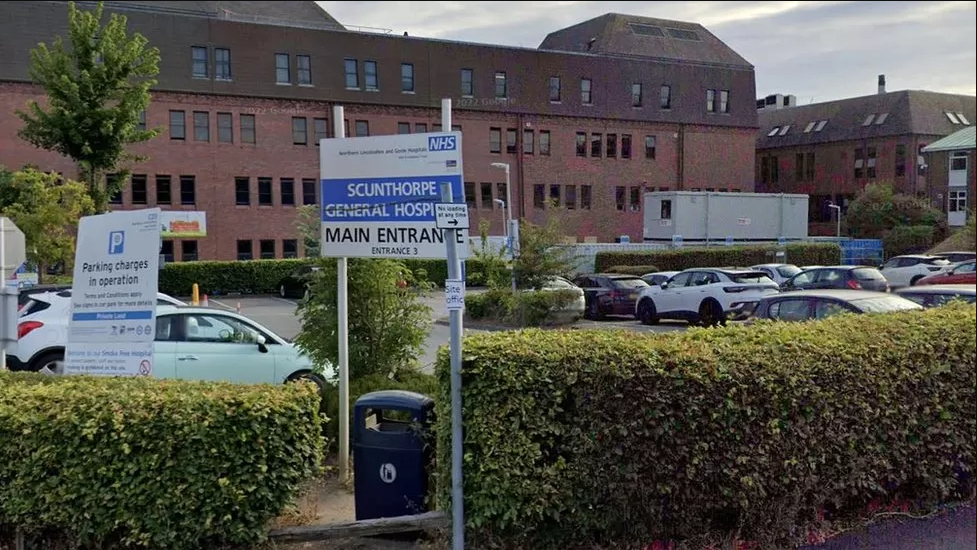
- Published8 May 2024
